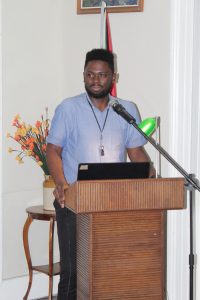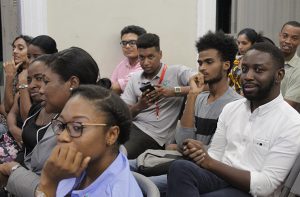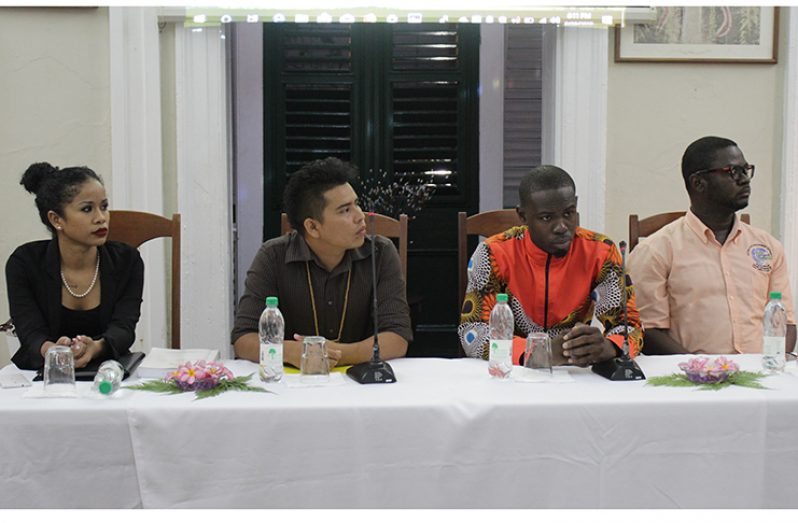THE Guyana National Youth Council (GNYC) has begun preparation to welcome its first set of elected executives and formalised members next month to advance its cause of driving youth development in Guyana.
“The council has been governed by a steering committee for quite some time and it is now time for persons who have led this ambitious venture to hand it over to the young people to whom it belongs,” steering committee member, Derwayne Wills said.

The council came into being in 2014 due to cognisance that there was a gap in youth representation in Guyana. Later, it functioned to promote active citizenship among youth. And while there are a plethora of youth organisations across Guyana, there is no umbrella organisation which amalgamates the common interest of developing youth and that also led to the creation of the GNYC.
The council has opened up membership applications and has been strengthening partnerships with some 80 partner organisations. In October, the GNYC will have its first general assembly and first general elections.
In the meantime, the body has begun engaging youths and stakeholders.
“We have to at some point reach out to our constituency and to our membership base and ask what is it exactly you want your youth council to do on your behalf. We can’t just sit in our spaces and think this is what young people in Guyana want,” the youth advocate posited.
With this in mind, “One Land, Many Peoples: Prioritising youth today for a better tomorrow”- an interactive discussion was organised by the GNYC and held on Tuesday night at the Moray House.
The discussion, or “conversation” as Wills terms it, featured presentations from President of the University of Guyana Student Society (UGSS), Norwell Hinds; member of Ikemba- the youth organisation supporting reparations in Guyana, Kibwe Copeland; representative of the Amerindian People’s Association (APA), Ted Lucas and Secretary of the Indian Action Committee (IAC), Saira Alli.

The panelists first presented their interpretations of what they believe is a prerequisite to prioritising youth for tomorrow with views ranging from bolstering youth representation to making education practical and available for all people.
In the case of Kibwe, youth development is not something that should merely be done for youths, but it is something that youths should actively and perhaps aggressively work towards acquiring.
“This conversation is actually the first in a series of conversations we’re going to be having and part of the reason why these conversations are necessary is because youth in itself is not just a group of people defined by this [15-35] demographic,” Derwayne said and highlighted that “youth” encompasses varying subgroups of young people with different and unique ideas, interests and identities.
What was highlighted at this conversation, along with all that will be garnered at the other conversations will be analysed qualitatively and made into a “position paper” which would serve as an agenda for the elected leaders of the GNYC to work with.



.jpg)











